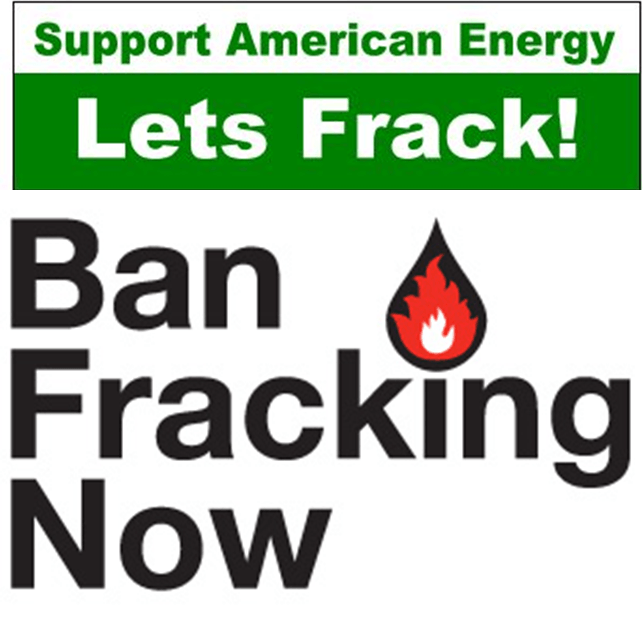
By Josh Garrett
Fracking is back in the news. The debate over the costs and benefits of the U.S. shale boom is heating up, despite a major slowdown in drilling activity brought on by low oil and natural gas prices.
Since modern fracking began, plenty of new information about the effects of shale development has come to light, but the defined positions in the debate remain the same: “Fracking is safe and an economic blessing” vs. “fracking is a certain environmental and public health disaster.”
There is truth to both positions: While high-volume horizontal hydraulic fracturing and the U.S. shale boom have delivered notable benefits, they unquestionably pose serious public health, social and environmental risks. But boiling down everything about shale development into “yes” or “no” positions is an oversimplified approach to a complex issue. According to a recent Gallup poll Americans are evenly divided into these two camps: 40 percent approve and 40 percent disapprove of the use of fracking to increase oil and gas production.
Meanwhile, 15 million Americans live within a mile of an oil or gas well. That number will only grow as more shale oil and gas wells appear in backyards, in parks and near schools. Faced with this reality, the most urgent question to ask about fracking and shale development is not about yes or no, but rather: How can we make it less risky for people and the environment?
Incomplete, inconsistent regulation
We're a decade into the shale boom, and clear, consistent, effective regulation of its industrial activity across states and regions remains elusive. Shale development is regulated to varying degrees at the state level. Some state regulations are effective and worthy of emulation, but none applies to the full spectrum of environmental and social impacts that shale development has on nearby communities.
Because hydraulic fracturing is exempt from several federal laws, the rule recently issued by the U.S. Department of Interior is the first national-level fracking regulation. It applies exclusively to oil and gas operations on federal and Indian lands, however, which only account for about 10 percent of nationwide oil and gas development activity.
While there are specific examples of sensible and effective regulation of fracking and shale development activities in the DOI rule and state schemes, the big picture of oversight in the U.S. is riddled with holes and inconsistencies that leave the risks to water quality, air quality, public health and quality-of-life inadequately addressed.
Voluntary performance standards: A reasonable alternative
Voluntary performance standards represent a currently nonexistent middle ground in the fracking debate: a nuanced position that supports minimizing risks and maximizing benefits rather than unqualified support or opposition. Industry can demonstrate its commitment to safety and reducing environmental impacts by adopting rigorous, comprehensive, transparent and independently-verified standards for social and environmental responsibility. Communities affected by development operations can use the framework of performance standards as a tool to engage with companies and set reasonable expectations for transparency and impact mitigation. Social and environmental standards worked to make the timber and commercial fishing industries more transparent, accountable and responsible. Why couldn’t they work for fracking?
Equitable Origin is taking on that question with the draft EO100 for Shale Oil and Gas standards for social and environmental performance. The draft standards provide guidance on social (in contrast to the DOI rule) and environmental performance to address the various impacts of shale development — from truck traffic to air quality — and reduce the risks of problems like water contamination from faulty well casings. Requirements for consultation between the operators of shale sites and local communities are a central component of the standards.
Benefits for companies and communities
If shale developers and communities approach development projects from a realistic and cooperative perspective while using performance standards as a framework for productive engagement, both parties stand to benefit. Communities can become more informed about what to expect from development projects and can secure public commitments from companies to adopt the best social and environmental practices, verified by objective third parties. Companies can establish more positive and productive relationships with affected communities that reduce the likelihood of costly legal action or protest that could slow or shut down their operations.
In the fracking debate, the loudest voices call for fracking bans or unrestricted shale development across the U.S. and the world while the voices of people directly affected by shale development go unheard and government regulations fall short of protecting their interests. Voluntary standards could help lay the foundation for a new perspective on fracking: not all good, not all bad, but complex and in need of close examination, careful planning, and the application of practices that consider the interests of all stakeholders.
Image credits: derrickhand300, investorvillage.com; foodandwaterwatch.org
Josh Garrett is the Director of Communications at Equitable Origin, where he leads the organization's shale standards and certification projects. He is dedicated to forwarding social and environmental causes by conveying the multiple benefits of social equity and sustainability to businesses, consumers, policymakers, and NGOs alike. He holds a Master of Public Administration degree in environmental science and policy from Columbia University.
TriplePundit has published articles from over 1000 contributors. If you'd like to be a guest author, please get in touch!














